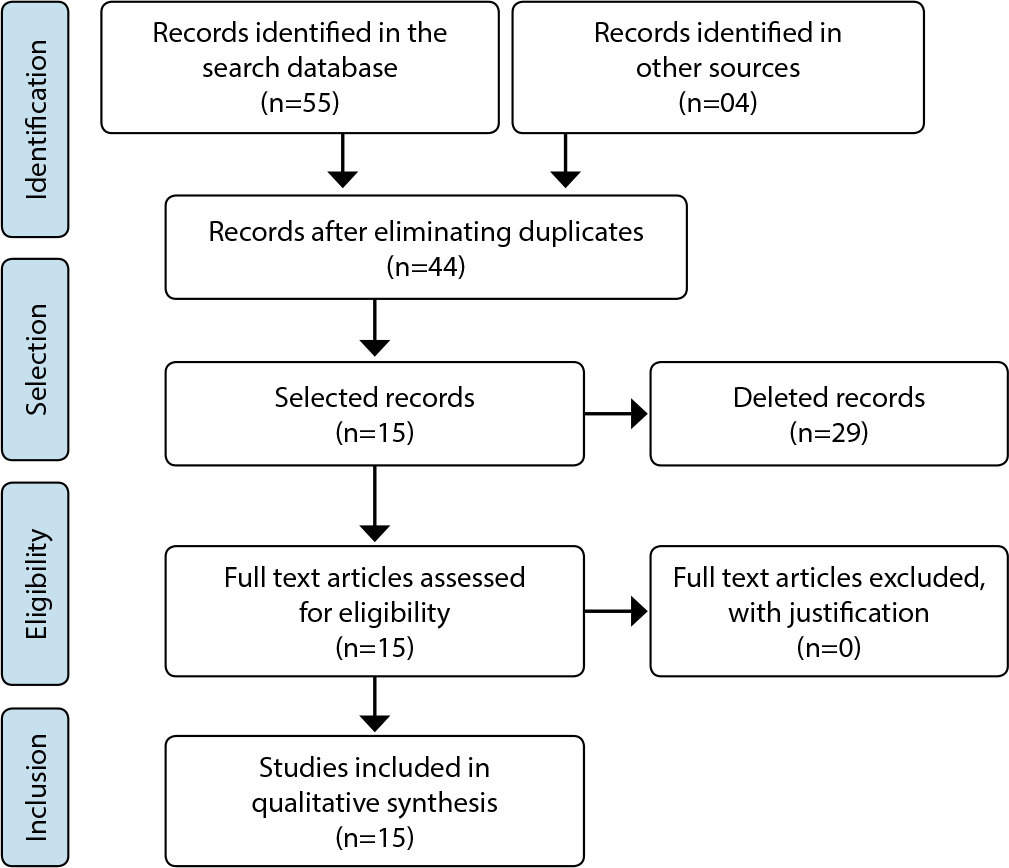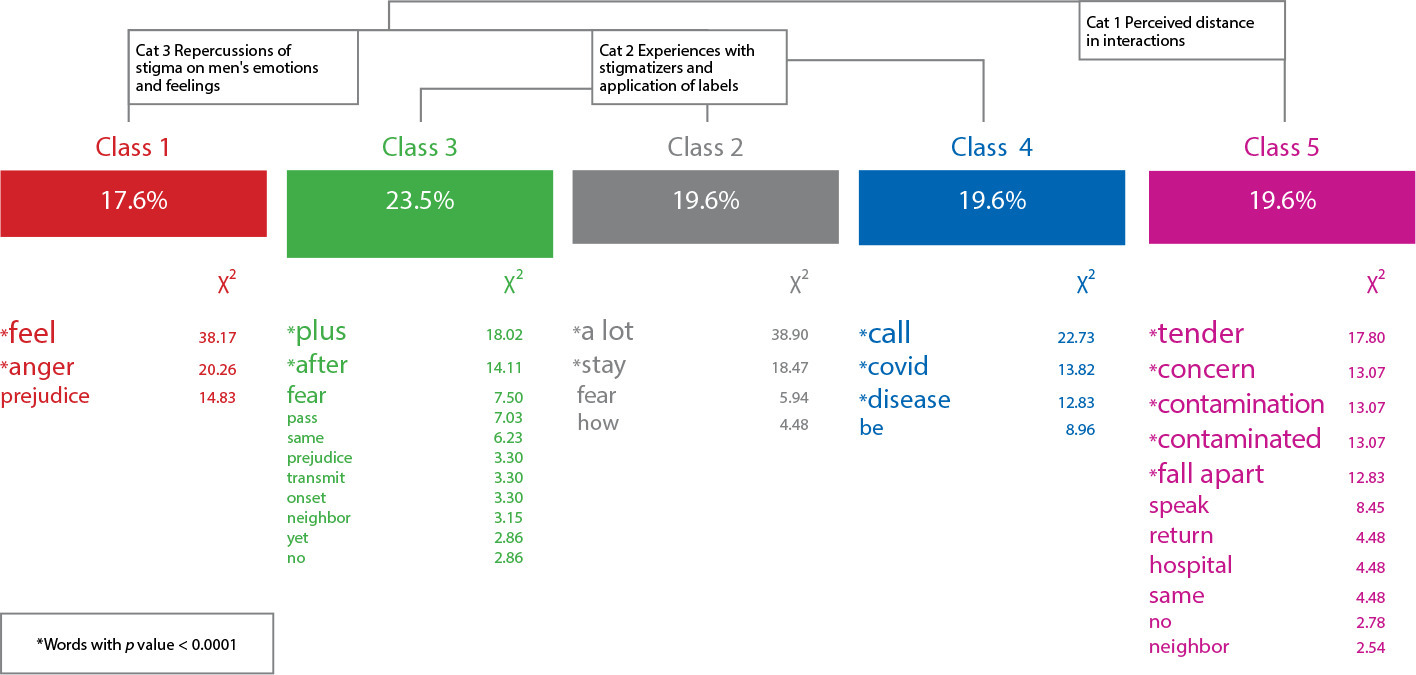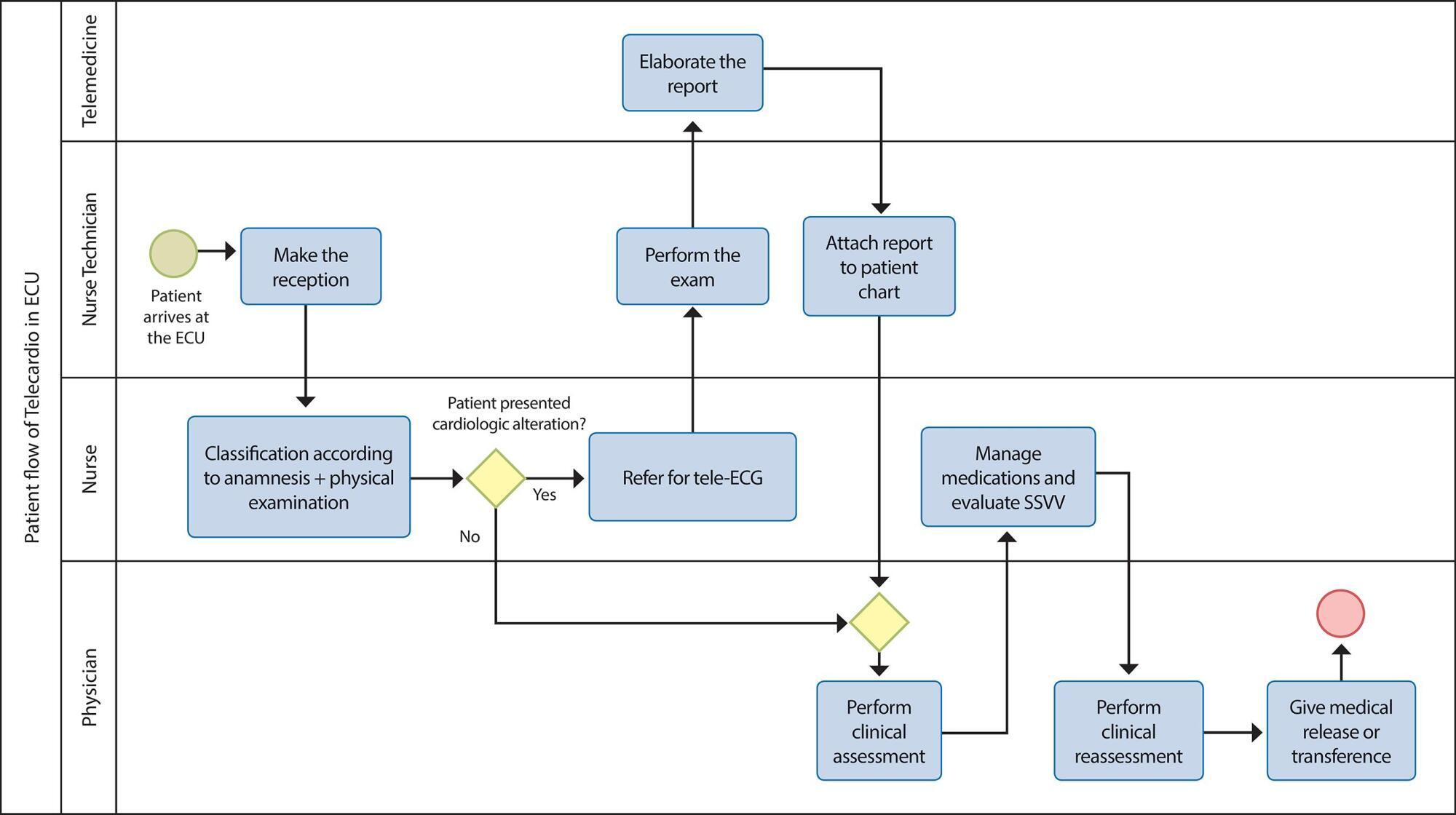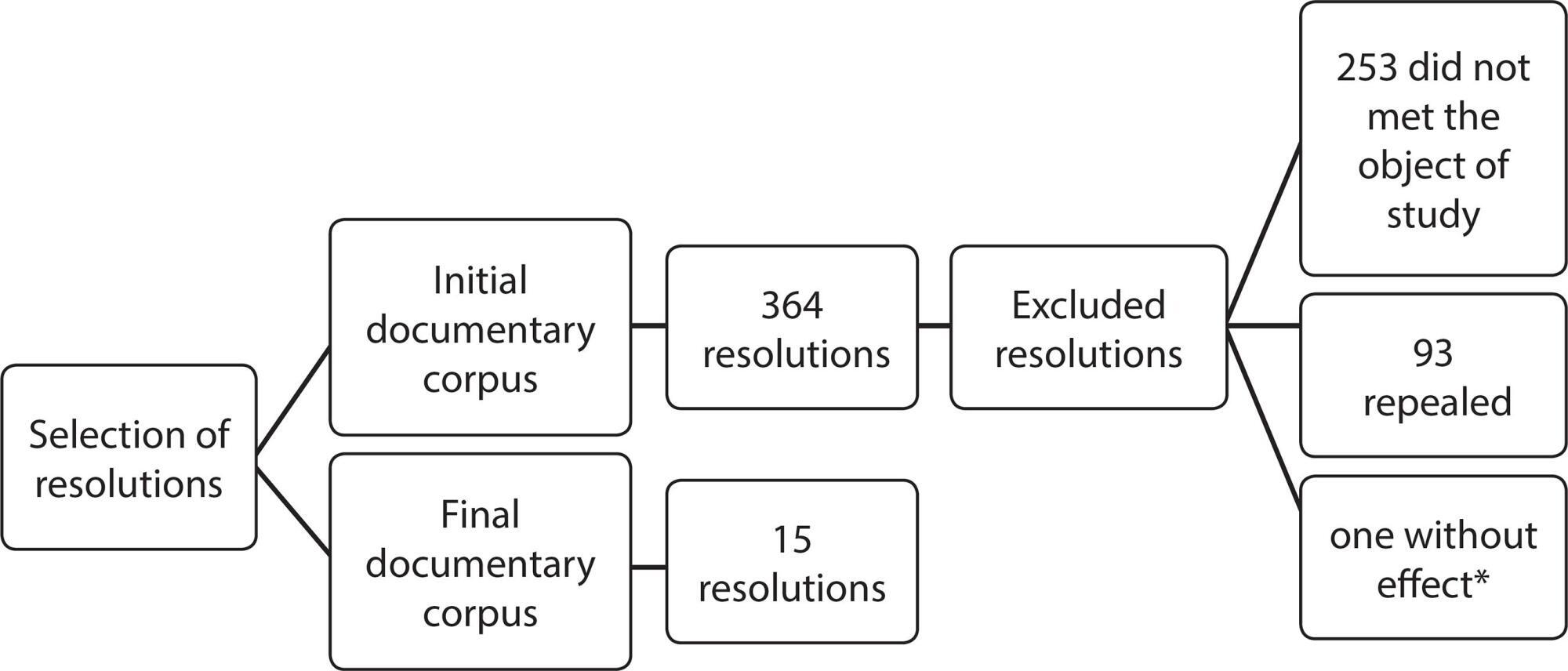-
11-25-2022
Populações vulnerabilizadas no contexto da pandemia e crises sanitárias
Revista Brasileira de Enfermagem. 2022;75:e75Suppl201
Abstract
Populações vulnerabilizadas no contexto da pandemia e crises sanitárias
Revista Brasileira de Enfermagem. 2022;75:e75Suppl201
DOI 10.1590/0034-7167.202275Suppl201pt
Views0As condições e os modos de vida da população determinam o processo de saúde e adoecimento de forma diferenciada entre os diversos grupos populacionais. As desigualdades na saúde vêm adquirindo relevância ainda maior na produção de diferentes perfis de doença, em função de recentes e surpreendentes acontecimentos mundiais, como divergências étnico-raciais, religiosas, territoriais, identidade de […]See more -
11-25-2022
Reflexões sobre a ciência em enfermagem gerontológica: possibilidades para o seu caminhar
Revista Brasileira de Enfermagem. 2022;75:e75Suppl401
Abstract
Reflexões sobre a ciência em enfermagem gerontológica: possibilidades para o seu caminhar
Revista Brasileira de Enfermagem. 2022;75:e75Suppl401
DOI 10.1590/0034-7167.202275Suppl401pt
Views0O conhecimento científico em enfermagem gerontológica brasileiro tem seus primórdios há mais de 50 anos, especificamente em meados de 1970, alinhados ao movimento mundial de reconhecimento da complexidade do envelhecimento populacional e dos seus desafios na esfera social, cultural, política e de saúde pública. Desde então, a produção científica nesse campo guarda relação com a […]See more -
11-19-2022
Advanced Practice Nursing: Canadian Perspectives and Global Relevance
Revista Brasileira de Enfermagem. 2022;75(1):e750101
Abstract
Advanced Practice Nursing: Canadian Perspectives and Global Relevance
Revista Brasileira de Enfermagem. 2022;75(1):e750101
DOI 10.1590/0034-7167.2022750101
Views0In this editorial, Advanced Practice Nursing (APN) will be explored as a practice model that could be implemented to strengthen health care systems globally. Canadian perspectives and the evolution of APN in Canada will be used as an example to identify potential opportunities for the conceptualization and implementation of advanced practice nursing that is both […]See more -
11-19-2022
Enfermagem de Prática Avançada: Perspectivas Canadenses e Relevância Global
Revista Brasileira de Enfermagem. 2022;75(1):e750101
Abstract
Enfermagem de Prática Avançada: Perspectivas Canadenses e Relevância Global
Revista Brasileira de Enfermagem. 2022;75(1):e750101
DOI 10.1590/0034-7167.2022750101
Views0Neste editorial, a Enfermagem de Prática Avançada (EPA) será explorada como um modelo de prática que pode ser implementado para fortalecer os sistemas de saúde globalmente. As perspectivas canadenses e a evolução da EPA no Canadá serão usadas como um exemplo para identificar oportunidades potenciais para a conceituação e implementação da EPA que seja abrangente […]See more -
ORIGINAL ARTICLE11-19-2022
Factors associated with the perception of fear of COVID-19 in university students
Revista Brasileira de Enfermagem. 2022;75:e20210448
Abstract
ORIGINAL ARTICLEFactors associated with the perception of fear of COVID-19 in university students
Revista Brasileira de Enfermagem. 2022;75:e20210448
DOI 10.1590/0034-7167-2021-0448
Views0See moreABSTRACT
Objective:
to analyze the factors associated with the perception of fear of COVID-19 in Brazilian university students.
Methods:
this is an online, cross-sectional analytical study conducted at a Brazilian public university with 1,437 undergraduate students between September and November 2020. The Fear of COVID-19 Scale was used to measure the main construct. Data analysis was performed using Mann-Whitney U test, Cohen’s r test and multiple linear regression analysis.
Results:
factors associated with fear of COVID-19 in university students were the variables biological sex, perception of good sleep quality, many days of access to information, not complying with social distancing, reporting sufficient hours of sleep, not having a partner, guidance sexual non-heterosexual, being in the risk group for COVID-19 and tobacco consumption.
Conclusions:
the study findings can contribute to the discussion about the weaknesses that the university population is experiencing in this pandemic period.
-
REVIEW11-19-2022
Nursing care for bed bath in patients with COVID-19: an integrative review
Revista Brasileira de Enfermagem. 2022;75:e20200704
Abstract
REVIEWNursing care for bed bath in patients with COVID-19: an integrative review
Revista Brasileira de Enfermagem. 2022;75:e20200704
DOI 10.1590/0034-7167-2020-0704
Views0See moreABSTRACT
Objective:
to identify the main nursing care procedures for performing bed bath in patients with COVID-19.
Method:
an integrative literature review. Five stages were followed for this research: research question elaboration (identification of the problem), search of studies in literature, study assessment, data analysis, and presentation of review. To search for primary studies, the VHL and SciELO databases were selected.
Results:
initially, 55 publications were found. After reading and analyzing the abstracts, the sample consisted of 15 studies.
Conclusion:
patients with the new coronavirus have specific care to perform a bed bath, oral, intimate and skin hygiene. It is important that professionals use adequate personal protective equipment, perform humanized care, continuously observing patients’ vital signs to avoid occurrence of adverse events, promoting patient safety.

-
ORIGINAL ARTICLE11-19-2022
Stigma experienced by men diagnosed with COVID-19
Revista Brasileira de Enfermagem. 2022;75:e20210038
Abstract
ORIGINAL ARTICLEStigma experienced by men diagnosed with COVID-19
Revista Brasileira de Enfermagem. 2022;75:e20210038
DOI 10.1590/0034-7167-2021-0038
Views0See moreABSTRACT
Objective:
to analyze the stigma characteristics perceived in the experience of men who had COVID-19.
Method:
this qualitative study involved men living in Brazil, diagnosed with COVID-19, who answered semi-structured questions in an online form. Data were subjected to thematic and lexical analysis, interpreted in the light of the stigma theory.
Results:
92 men, adults, cisgender, heterosexual, of mixed race/color, belonging to middle class, living in the urban area, with higher education participated. The stigma characteristics evidenced were the occurrence of leave, perception of impolite treatment, use of labels and discrimination by co-workers, family members, neighbors and even healthcare professionals, with consequences for the psycho-emotional dimension.
Final considerations:
discrimination and exclusion derived from stigma surprised men marked by class and gender privileges, little used to being downgraded in interactions when compared to other groups.

-
ORIGINAL ARTICLE11-15-2022
Suffering and defense mechanisms: an analysis of the work of Primary Health Care nurses
Revista Brasileira de Enfermagem. 2022;75:e20200419
Abstract
ORIGINAL ARTICLESuffering and defense mechanisms: an analysis of the work of Primary Health Care nurses
Revista Brasileira de Enfermagem. 2022;75:e20200419
DOI 10.1590/0034-7167-2020-0419
Views0See moreABSTRACT
Objective:
To analyze the suffering and coping strategies of nurses working in Primary Health Care considering the psychodynamics of their work.
Methods:
Descriptive study with a qualitative approach, carried out with 11 nurses working in Primary Health Care. Data were collected through semi-structured interviews, systematized, and interpreted using Bardin’s content analysis method applied to recurrent themes.
Results:
The suffering factors related to work in Primary Health Care are difficulties with management, the fragile structure of the health support network, and conflicts with the users. Defensive strategies to minimize these difficulties are the support of hierarchical superiors, the empowerment of the community and users, and communication between team members.
Final considerations:
It is important that there be changes in the organization of this line of work to improve the workers’ health.
-
EXPERIENCE REPORT12-04-2020
COVID-19 pandemic: report on the use of auriculotherapy to optimize emergency workers’ health
Revista Brasileira de Enfermagem. 2020;73:e20200507
Abstract
EXPERIENCE REPORTCOVID-19 pandemic: report on the use of auriculotherapy to optimize emergency workers’ health
Revista Brasileira de Enfermagem. 2020;73:e20200507
DOI 10.1590/0034-7167-2020-0507
Views0See moreABSTRACT
Objective:
To report the use of auriculotherapy to optimize emergency workers’ health during the COVID-19 pandemic.
Methods:
Experience report of auriculotherapy application in 48 workers of a mobile emergency care service center located in a city in the Northeast of Brazil.
Results:
Six auriculotherapy sessions were held, each lasting eight minutes, based on specific protocols in the area and Chinese energy physiology. The aim of the practice was to contribute to the improvement of physical (pain) and emotional (anxiety, stress) symptoms, and the promotion of greater health and willingness to work. In addition, the experimentation of this practice was thought of as a pilot for the creation of a care service for workers.
Final Considerations:
In the report of auriculotherapy, the description of its application and its positive and negative points in relation to professionals working in the pandemic scenario were considered and its continuity was requested.

-
ORIGINAL ARTICLE06-01-2020
Nursing knowledge patterns: nurses’ image and role in society perceived by students
Revista Brasileira de Enfermagem. 2020;73(4):e20180959
Abstract
ORIGINAL ARTICLENursing knowledge patterns: nurses’ image and role in society perceived by students
Revista Brasileira de Enfermagem. 2020;73(4):e20180959
DOI 10.1590/0034-7167-2018-0959
Views0See moreABSTRACT
Objectives:
to understand high school students’ perception about the nurse’s image and role in society, from nursing knowledge patterns.
Methods:
phenomenographic qualitative study, developed between October 2017 and January 2018, in a public university in the countryside of the state of São Paulo, with eight Interdisciplinary Higher Education Program (Programa de Formação Interdisciplinar Superior) students. The findings were collected through semi-structured interviews and analyzed by the phenomenography framework, supported by rereading nursing knowledge patterns.
Results:
two categories emerged: Perception of nurses’ image, which contemplates their positive and negative characteristics, attributes and place where they operate; and Nurses’ role in society, in which their work is compared with physicians’.
Final Considerations:
despite their essential role in care, subordination to medical knowledge and lack of knowledge of nurses’ functions still reflect their image.
-
ORIGINAL ARTICLE05-24-2021
Critical thinking in nursing training: evaluation in the area of competence Education in Health
Revista Brasileira de Enfermagem. 2021;74:e20200979
Abstract
ORIGINAL ARTICLECritical thinking in nursing training: evaluation in the area of competence Education in Health
Revista Brasileira de Enfermagem. 2021;74:e20200979
DOI 10.1590/0034-7167-2020-0979
Views0See moreABSTRACT
Objective:
To analyze the constitution of critical thinking in nursing training in the approach by competence and the integrated curriculum, considering the evaluation process by capturing its challenges, and proposing overcoming strategies.
Methods:
Qualitative. In the first phase of data collection, interviews were conducted with twenty-four professors, nine preceptors, and fifteen students to reconstruct the profile of competence, and in the second phase, a workshop to validate the profile identified challenges and proposals. The Collective Subject Discourse was used to analyze the interviews and the holistic competence reference in reconstructing the profile.
Results:
The critical thinking is built based on experiences in the world of work, and evaluation is the conductor of reflections towards emancipation.
Final considerations:
It signals the importance of professor training in the learning evaluation and working with the collective construction of subjects to overcome challenges that happen in the changes of training.
-
ORIGINAL ARTICLE08-19-2019
Evaluation of nurse’s performance in telemedicine
Revista Brasileira de Enfermagem. 2019;72(4):933-939
Abstract
ORIGINAL ARTICLEEvaluation of nurse’s performance in telemedicine
Revista Brasileira de Enfermagem. 2019;72(4):933-939
DOI 10.1590/0034-7167-2018-0313
Views0See moreABSTRACT
Objective:
Describe the nurse’s role in the Telemedicine Program in Cardiology implanted in Pernambuco, Brazil.
Methods:
Qualitative study, with a target audience of nurses, performed between July and December 2016 at the Emergency Care Units. Data were collected through an online instrument, consisting of open and closed questions, performed with 19 professionals. The data were analyzed through the discourse of the collective subject by QuantiQualisoftware.
Results:
The sample consisted of 19 nurses, mostly female (80%), with a mean age of 30 years old. Two central ideas were constructed: nurses’ knowledge about the Telemedicine Program in Cardiology; and actions developed by nurses. Also, a flow of the program’s assistance was built.
Final considerations:
The nurse in Telecardiology performs functions of assistance and continuing education of monitoring and training for patients.

-
ORIGINAL ARTICLE04-03-2020
Analysis of the guiding rules of the nurse technician’s practice in Brazil
Revista Brasileira de Enfermagem. 2020;73(3):e20180322
Abstract
ORIGINAL ARTICLEAnalysis of the guiding rules of the nurse technician’s practice in Brazil
Revista Brasileira de Enfermagem. 2020;73(3):e20180322
DOI 10.1590/0034-7167-2018-0322
Views0INTRODUCTIONThe institutionalization of nursing as a profession is characterized by the division of labor, marked by discipline and hierarchy, with the participation of several active agents, among which we can cite the nurse, the nurse technician, the nursing assistant, and the nursing attendant. The latter, although mentioned in the legislation, has been extinct since the […]See more
-
08-07-2023
Chemsex and its repercussions on the health of men who have sex with men (MSM): a global health perspective
Revista Brasileira de Enfermagem. 2023;76(3):e20230004
Abstract
Chemsex and its repercussions on the health of men who have sex with men (MSM): a global health perspective
Revista Brasileira de Enfermagem. 2023;76(3):e20230004
DOI 10.1590/0034-7167-2023-0004
Views0See moreABSTRACT
Objectives:
to discuss the repercussions of chemsex on the health of men who have sex with men (MSM), contextualizing it in a global health scenario and pointing out the implications for nursing care.
Methods:
theoretical-reflexive study based on scientific literature and concepts related to global health.
Results:
we present the epidemiology of the chemsex phenomenon, the main demands of the field, the reasons why it has become a global public health problem, and the implications for nursing practice.
Final Considerations:
chemsex is growing in all age groups of MSM and is globally benefiting from location-based applications to gain magnitude, finding an important potential audience in the migrant population. Nursing structures can help accelerate the proposal and implementation of biomedical and behavioral measures to address chemsex in its entirety, qualifying care and inducing teamwork with interprofessional collaboration.
-
ORIGINAL ARTICLE09-29-2022
Entrepreneurship among Undergraduate Nursing Students at a public university
Revista Brasileira de Enfermagem. 2022;75(1):e20201388
Abstract
ORIGINAL ARTICLEEntrepreneurship among Undergraduate Nursing Students at a public university
Revista Brasileira de Enfermagem. 2022;75(1):e20201388
DOI 10.1590/0034-7167-2020-1388
Views0See moreABSTRACT
Objectives:
to identify undergraduate nursing students’ entrepreneurial tendency at a public university.
Methods:
cross-sectional study, with a quantitative approach, with 135 undergraduate nursing students from a public university in the interior of the state of Rio Grande do Sul, Brazil. Data were collected using a socio-professional characterization form and a General measure of Enterprising Tendency test and analyzed using descriptive statistics.
Results:
among the five entrepreneurial tendencies, students presented results equal or above average in two dimensions: Drive and Determination (82.2%) and Need for Success (51.1%). The Creative tendency was the dimension with the highest percentage of participants below the average (68.9%). However, students in research or extension groups scored equal or above average in all five entrepreneurial tendencies.
Conclusions:
students showed low entrepreneurial tendencies, indicating the need for a broader approach to the subject in nursing education.
-
ORIGINAL ARTICLE03-17-2023
Production and validation of an educational video on the use of the Z-Track Technique
Revista Brasileira de Enfermagem. 2023;76(2):e20220439
Abstract
ORIGINAL ARTICLEProduction and validation of an educational video on the use of the Z-Track Technique
Revista Brasileira de Enfermagem. 2023;76(2):e20220439
DOI 10.1590/0034-7167-2022-0439
Views0See moreABSTRACT
Objective:
to create and validate an educational video on intramuscular drug administration using the Z-track technique.
Methods:
the Delphi Technique was used to validate the script. PhDs in Nursing and PhDs in Social Communication with experience in the production of educational videos participated in the process. After editing, the video was validated by three nursing professors and assessed by students of the undergraduate nursing program at a public university.
Results:
the video was validated by the examiners with 100% agreement in three rounds for script validation and in two for video validation after editing. The duration of the video was 9 minutes.
Conclusion:
after validation by the examiners, students assessed the video and considered it suitable for learning. We This video is expected to aid in the training of nursing professionals and the enhancement of patient care.
Search
Search in:
Nuvem de Tags
Adolescente (85) Atenção Primária à Saúde (239) COVID-19 (91) Criança (91) Cuidados de Enfermagem (269) Educação em Enfermagem (151) Educação em Saúde (139) Enfermagem (930) Enfermagem Pediátrica (86) Estudantes de Enfermagem (77) Estudos de Validação (131) Família (87) Idoso (208) Promoção da Saúde (99) Qualidade de Vida (104) Saúde do Trabalhador (86) Saúde Mental (145) Saúde Pública (82) Segurança do Paciente (150) Tecnologia Educacional (100)



